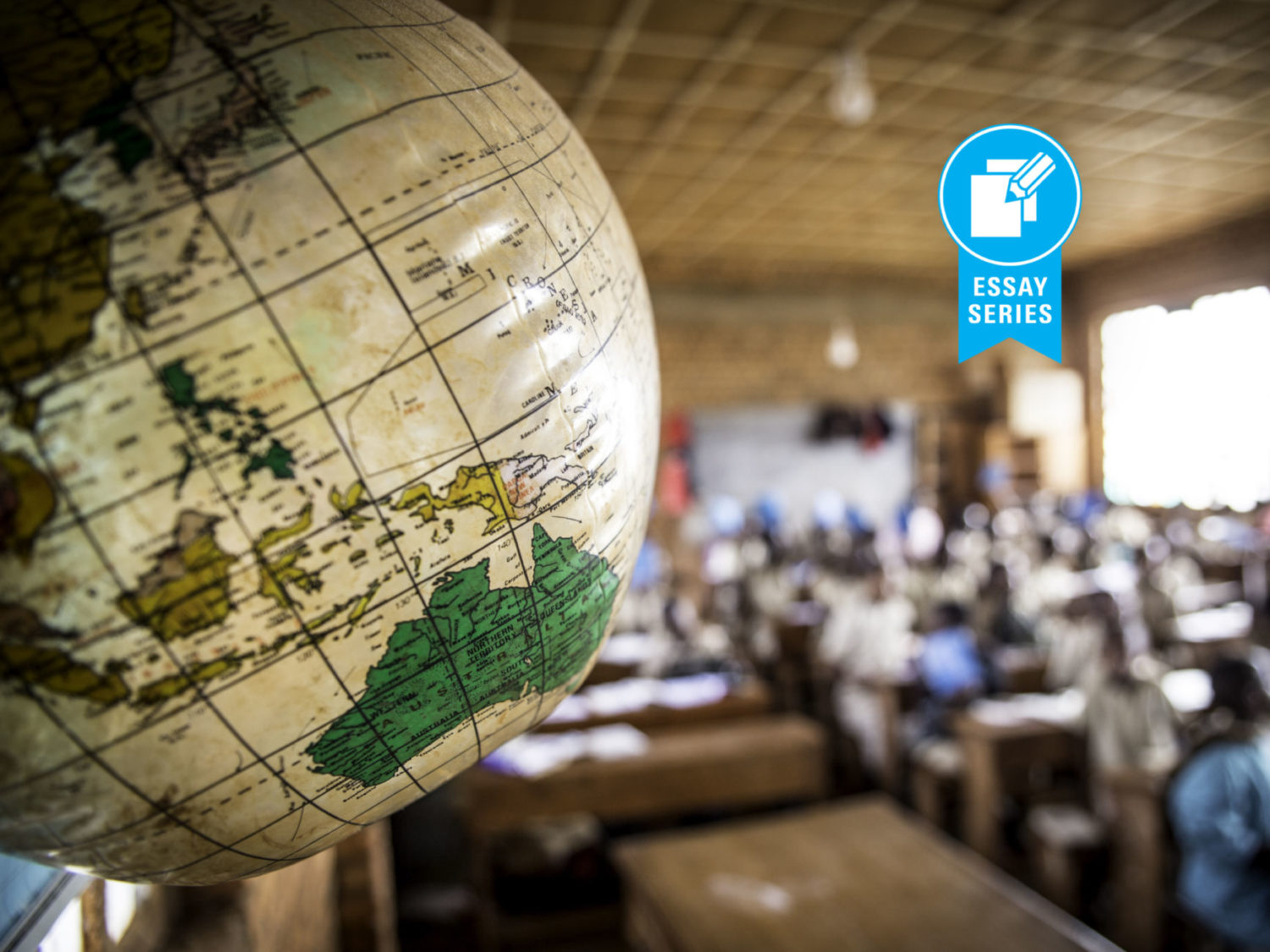
The role of business in tackling climate change
“Are we there yet?”
Just about anyone who has ever taken a road trip with young children has heard that question, probably more than once. It is often delivered with a sigh (if not a wail) of impatience, which may be annoying but is completely understandable. It’s natural to want to skip over the boring part and get on with more interesting things.
In the age of Covid-19, we are all a bit like those exasperated girls and boys in the backseat of the car. More than a year into a global pandemic, many of us are asking when we will reach a destination we call “normal,” vaguely defined as the pre-pandemic status quo. We are tired of lockdowns and restrictions. We want our lives back.
Sadly, as infections and deaths keep climbing globally and the distribution of lifesaving vaccines and treatments remains grossly inequitable, we still have a long way to travel. But before we get to the other side of this crisis, we have to make some critical choices about what normal will look like for ourselves, the next generation and generations to come.
By “we” I am referring here to the international community writ large, convened and coordinated by world leaders and the United Nations. The United Kingdom, in particular, is assuming global leadership as the host and convener of several upcoming events that will begin to shape the post-pandemic future, from the G7 meeting in June to the Global Education Summit in July (co-hosted with Kenya) to the COP26 climate conference in November.
Against the backdrop of these events, all of us –including business, government, civil society, entrepreneurs and consumers – must select one of two possible roads ahead: We can either take a deeply flawed but familiar route to business as usual, bringing us right back where we started from; or we can course correct and choose a new normal in the form of a global economy that protects people, the planet and all the natural systems that sustain us.
The choice could not be clearer. Business as usual is not an option.
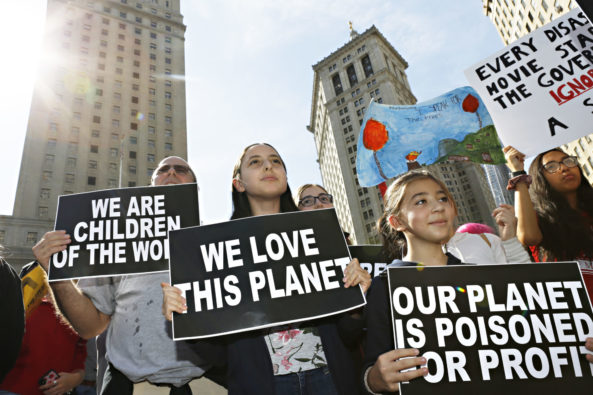
A failure of adult leadership has left children and young people – and all of us – in a race against time. Humanity cannot afford any more missed opportunities. Now is the moment to fast-track climate solutions.
Even before Covid-19, the world faced multiple concurrent crises. The pandemic has only magnified many of these challenges. Its devastating economic impact has worsened wealth and income inequality, threatened progress on empowering women and girls, and heightened the risk of an ongoing cycle of intergenerational poverty.
At the same time, even though carbon emissions have dropped slightly due to the economic slowdown of the past year, we are still on a trajectory towards global heating of more than 3 degrees Celsius above pre-industrial levels by the end of the century. This existential threat will be our legacy to the world’s children – and their children – unless we change direction now.
As the world’s largest corporate sustainability initiative, the UN Global Compact is determined to help business be a force for that change. Only by supporting a green, inclusive recovery from the Covid-19 crisis can companies of all sizes, in all sectors and regions, secure their own survival and our collective future. To that end, the Global Compact’s strategic goals are steeped in both the 2030 Agenda for Sustainable Development and the Paris Agreement on climate change. In the context of the coming recovery, we are calling on companies to set more ambitious, measurable targets for sustainability, and we are holding them accountable to meet those milestones.
More than 12,000 companies have signed onto the Global Compact. We need them and many thousands more to heed the call for a green recovery by aligning their operations with an accelerated, equitable transition to clean energy.
A green recovery will also require investments in training, education and employment – especially for young people and especially in Africa, home of the largest youth generation in world history. By directing resources to equip the next generation with the 21st century tools and skills they need, decision-makers in government and industry can build momentum towards a net-zero carbon economy. As Pope Francis put it during a UNESCO forum on biodiversity in March: “It is particularly important that young people are trained in the safeguarding of creation and respect for others … in order to generate a new model of economic growth that puts the environment and people at the centre.”
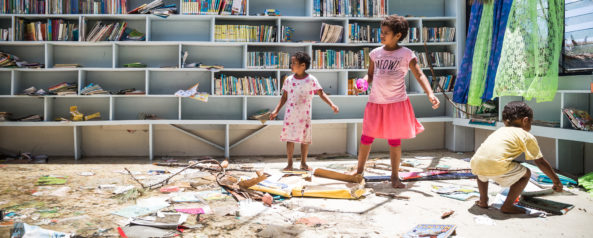
We are working with Chief Financial Officers from major corporations to boost sustainability. These executives recognize that when they integrate sustainability into their policies and practices, they outperform businesses that fail to do so. More and more companies realise that cutting greenhouse gases is a good investment. And it is a precondition for future economic progress.
Fortunately, young people are already leading the way on climate action though innovation and advocacy. What is truly striking, besides the obvious scale of the crisis, is the passion with which they are responding to it. This gives me enormous hope. However, the environmental advocates and leaders of today and tomorrow need much more support than they have received to date. Activists like Greta Thunberg should not have to sail across the North Atlantic to garner attention. Responsible leaders in the public and private sectors should champion their work and their cause.
The Leaders Summit on Climate hosted by US President Joe Biden in April showed that some important business leaders and investors have begun to do just that. Even as heads of state from many of the world’s largest economies pledged to make more meaningful reductions in greenhouse gas emissions by mid-century, dozens of companies at the summit announced that they would increase investment in renewable energy, electric vehicles and other measures for decarbonization.
It remains to be seen whether these commitments will be matched by adequate financial resources to massively scale up climate change mitigation measures, or by further commitments to climate adaptation. There is a big difference between promises and real outcomes. Still, the announcements at the Leaders Summit generated widespread media attention to the private sector’s key role in transforming the global economy from grey to green.
In reality, though, this is not quite breaking news. Today, climate change is at the top of the list of environmental, social and governance issues that responsible investors consider when they screen companies. Thousands of businesses have committed to advancing the Paris Agreement, and more companies are committing to it every week. Meanwhile, at the UN Global Compact, we are working with a task force of Chief Financial Officers from major corporations to connect the finance community with real-world outcomes that boost sustainability.
CFOs oversee more than US$14 trillion in corporate investments annually. That includes trillions in foreign direct investment, much of which goes to emerging markets where the need for inclusive, sustainable development is most acute. Increasingly, these executives recognize that when companies spend time learning about sustainability — and integrating it into their policies and practices — they outperform businesses that fail to do so.
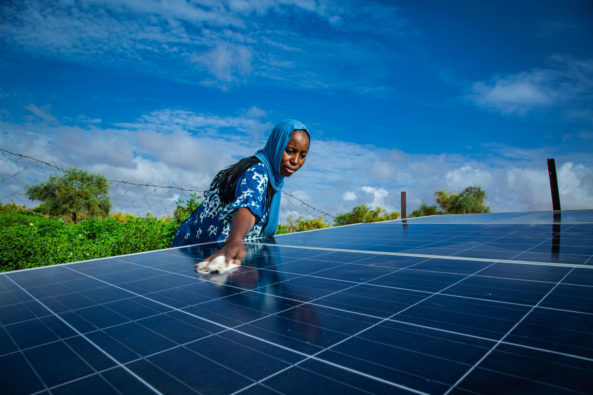
The choice between a liveable planet and a healthy global economy is false. Taking climate action is the best way to build more resilient businesses, communities and societies. Beyond environmental preservation, our prospects for global stability, peace and security are at stake
On climate action in particular, more than 1600 companies around the world have joined the Science Based Targets initiative, which promotes best practices for businesses setting ambitious targets to reduce their carbon emissions. The Global Compact is one of the partners in this continuing effort. More and more companies and industries are realizing that cutting their greenhouse gas emissions in line with climate science is a good investment. They understand that limiting the rise in global temperature to 1.5 degrees Celsius can avert the worst impacts of climate change. And they know this is not only an environmental and humanitarian imperative; it is a precondition for future economic progress.
Corporate climate action can also send market signals for governments to meet and strengthen their commitments under the Paris Agreement. These commitments – known as Nationally Determined Contributions – represent the actions that each country has agreed to take towards reducing emissions and adapting to the impacts of climate change.
As part of our own response to this urgent challenge, the UN Global Compact has joined the Race to Resilience, a UN Climate Change campaign launched in the lead-up to the COP 26 conference in Glasgow. The campaign aims to catalyze action by a range of partners, including the private sector, in the context of multilateral climate action. Its overarching goal is to help build the resilience of billions of people by 2030, focusing on the communities and regions most deeply affected by climate shocks.
Business participants in the UN Global Compact are contributing to the Race to Resilience through the Water Resilience Coalition, our industry-driven initiative to improve water availability, quality and access for 100 million people in the greatest need. This coalition is essential, because many of the worst impacts of climate change will be felt through water. As a result of intensifying floods and prolonged droughts, 2 billion people around the world are already living in water-stressed areas.
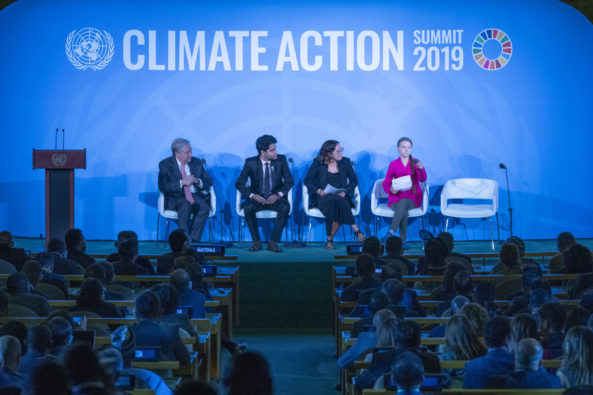
The journey out of the pandemic can take us to a safer, more equitable world that spares today’s young people and their children from the most catastrophic effects of climate change, allowing them to fulfil their potential as the leaders of tomorrow. We know the way. For their sake, with patience, determination and all deliberate speed, let’s get moving.
UNICEF can attest, better than most, that children and young people are always among the most vulnerable in the face of water stress and other climate-related crises. Access to safe water is also an important factor for handwashing and hygiene measures that can help parents protect themselves and their children from Covid-19 and other potentially deadly diseases.
It is unfortunate, of course, that a general failure of adult leadership on a crisis that scientists forecast decades ago has left children and young people so vulnerable, forcing them – and all of us – into a race against time. At this point, humanity cannot afford any more missed opportunities. We cannot wait for the next mega-flood or superstorm; now is the moment to fast-track climate solutions, including both mitigation and adaptation strategies. We need bold action today to be able to reach the goal of net-zero carbon emissions by 2050. What we do not need is a false choice between a liveable planet and a healthy global economy. On the contrary, taking climate action is the best way to build more resilient businesses, communities and societies.
While there are costs involved in measuring, monitoring and managing emissions, there are also clear financial opportunities in reducing them. Improvements in energy efficiency can deliver attractive returns on investment for any company, including the small and medium-sized enterprises that comprise most of the world’s businesses.
The need for climate action has been on the radar of the UN Global Compact since former UN Secretary-General Kofi Annan founded the initiative back in 2000. Three of our ten guiding principles for responsible, sustainable business practices and supply chain operations specifically address environmental stewardship. Our principles on human rights are also intertwined with the climate agenda. As UN Secretary-General António Guterres recently pointed out, vulnerability to climate risks directly correlates with income inequality. Unless we protect the rights of those who are most exposed to the effects of climate change, we can expect them to become even more marginalized and their grievances to be reinforced. Beyond environmental preservation, our prospects for global stability, peace and security are at stake.
Ultimately, we are all on this journey together – not only the journey out of the pandemic but also the one that can take us to a safer and more equitable world. Our destination is a sustainable future that spares today’s young people and their children from the most catastrophic effects of climate change, allowing them to fulfil their enormous potential as the leaders of tomorrow. We are not there yet – not by a long shot – but we know the way. For their sake, with patience, determination and all deliberate speed, let’s get moving.
Please note that the views expressed in this essay are those of the author and do not necessarily represent the views of UNICEF UK.


